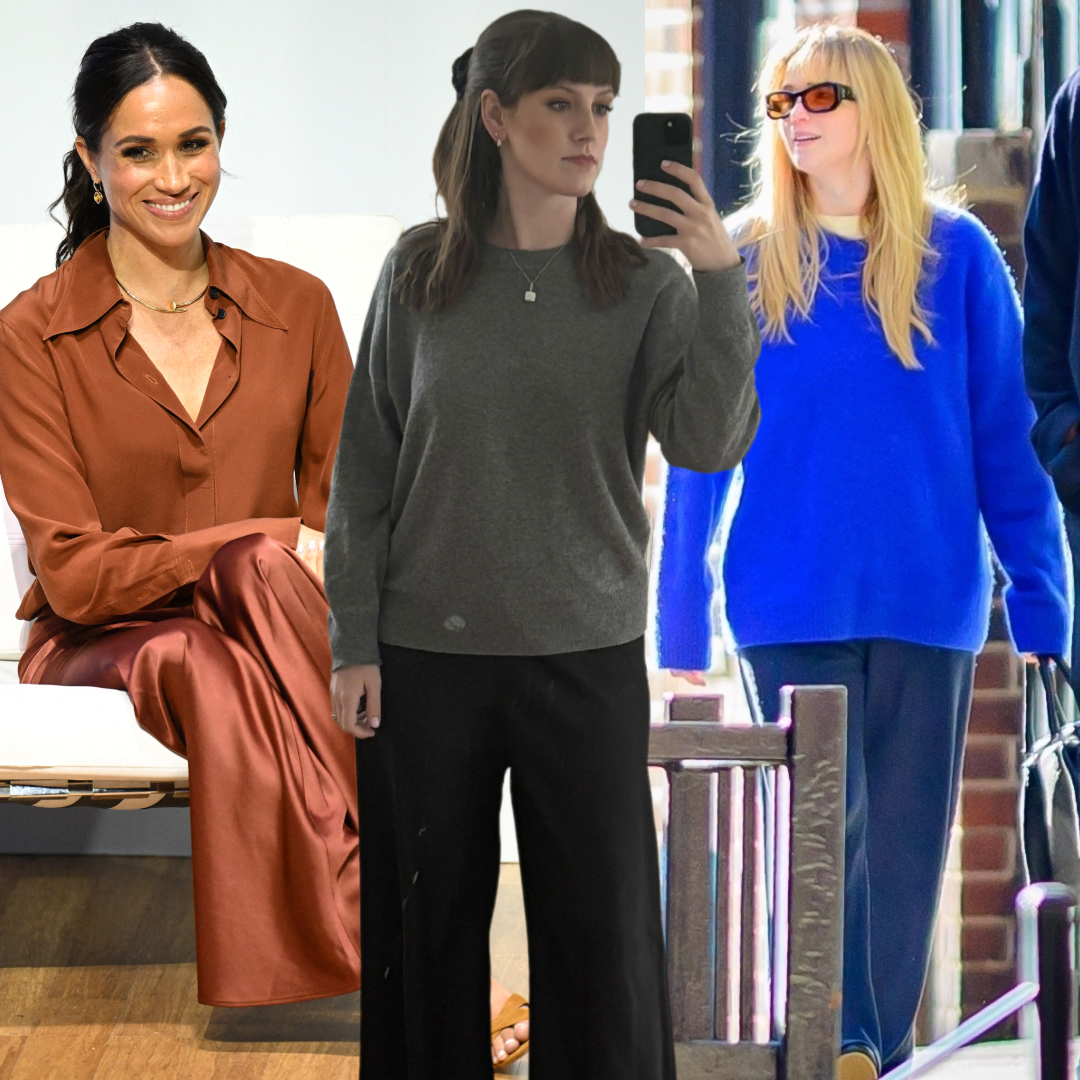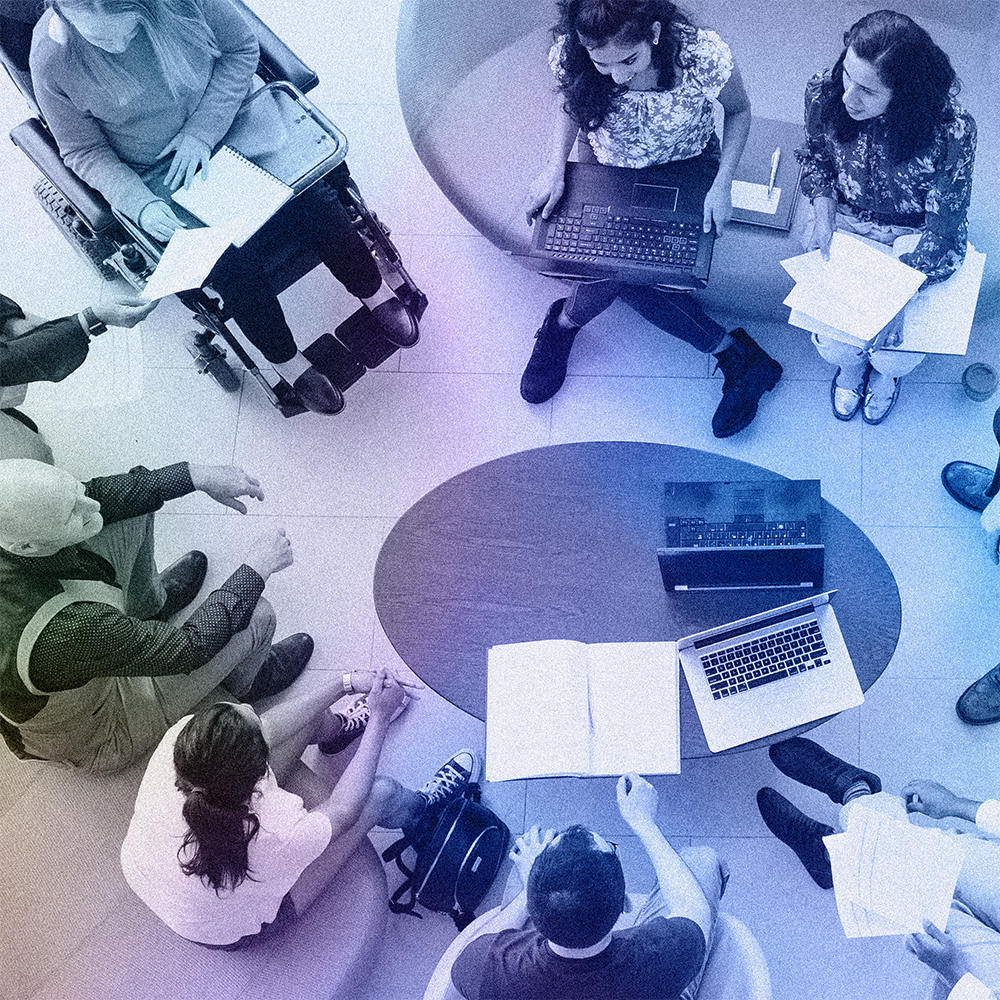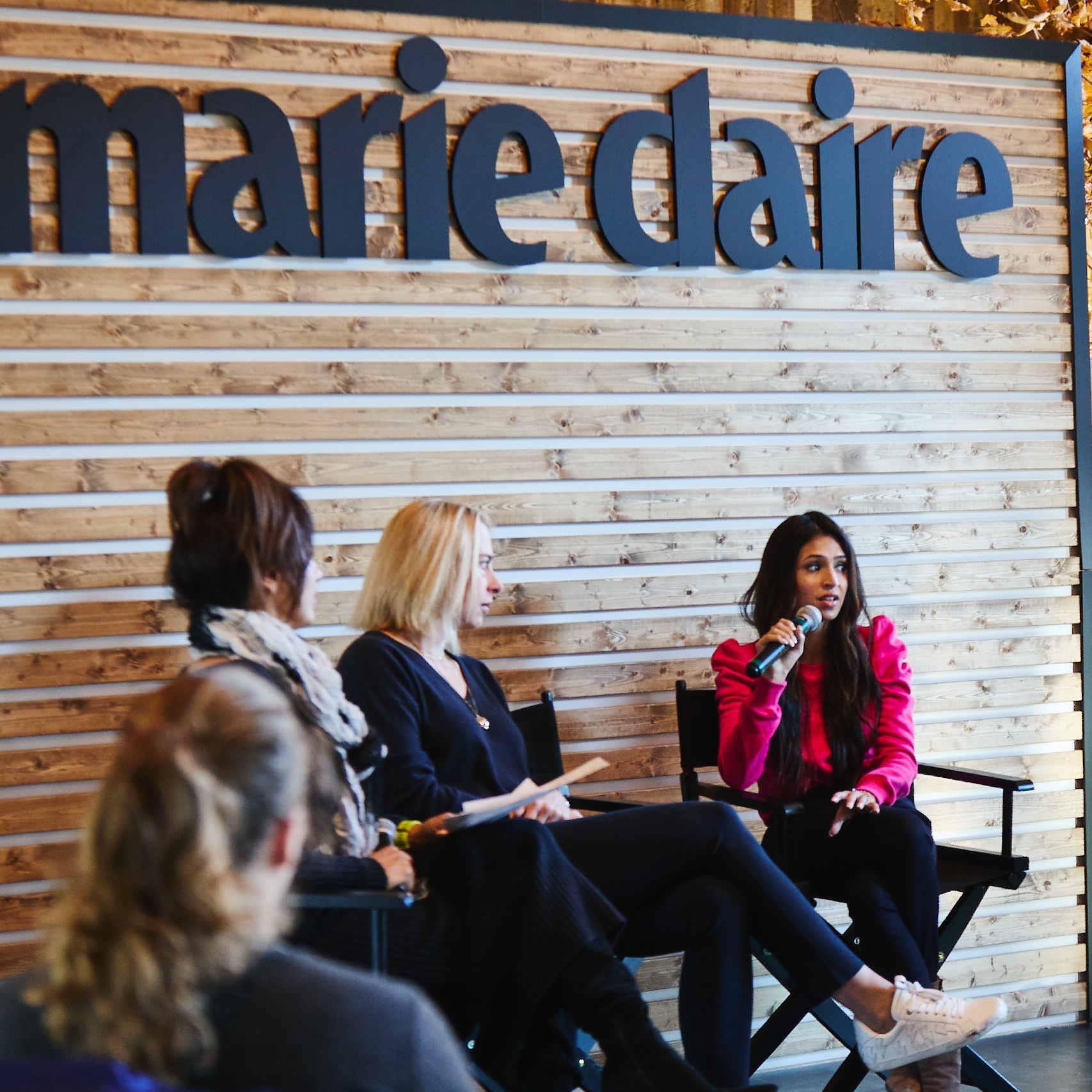Are Women Too Emotional at Work?
Now that women make up the bulk of the workforce, should we brace ourselves for more tears at the office?
Now that women make up the bulk of the workforce, should we brace ourselves for more tears at work? MC asks Anne Kreamer, author of It's Always Personal, when it's OK to cry.
Your book suggests that women are hardwired to cry, while men are predisposed to getting angry. So being hypersensitive is in our genes?
It's not so much that we are hardwired to be sensitive, per se, but it's true that biologically, crying is simply easier for women. We produce six times more prolactin, the hormone that facilitates crying, than men do, and our tear ducts are bigger, so the tears are more copious. Also, young women have a greater propensity for crying than older people, who aren't going through those powerful monthly fluctuations of estrogen and progesterone. Emotion gets more even-keeled the older you get. That's just a biological fact of life.
Does that mean we've got no control over it?
My research found that crying was often something a woman did explicably when she actually wanted to get angry. Since angry women are labeled bitches — the worst thing you can get labeled as a woman — we do the more socially acceptable thing, which is cry. There's nothing wrong with crying. But emotions outside the norm can be disruptive. Get a cup of coffee, look at a picture of your dog — whatever you need to do to cool down.
Things may be changing, but let's face it, crying at work is still a major no-no. So what should you do if you feel tears well up?
Acknowledge it. Tell the person you're talking to, "I think what you're saying is really important, but I'm having some trouble processing it right now. Could we pick this up tomorrow?" Don't leave it open-ended. You know, one of my studies found that after men cried, they felt better. But after women cried, they felt unhappy, like they'd done something taboo. Crying is really a biological necessity, part of how humans interact. Relax and remember: Crying at work isn't a moral failure. It happens.
Stay In The Know
Get exclusive access to fashion and beauty trends, hot-off-the-press celebrity news, and more.
Some of the harshest critics of women who cry at work are other women. Why is that?
There is that stereotypical baby boomer battle-ax with the attitude of I've made it through the system wearing my dorky bow ties, sucking it up — damn it, you're going to suck it up, too. But now that women represent the majority of the workforce, it's a chance to re-evaluate things. Crying can be good for business. If everyone feels repressed, that hampers innovation and creativity, which are really what drive revenues.
Speaker of the House John Boehner is famously teary, and people seem to find it endearing. Is this a double standard or proof that crying is finally acceptable?
I think when a man shows that he's part of what I call "the crying tribe," it's better for everyone. It's always been assumed that those who cry will never be able to reach the highest levels because they are somehow weak. But my research found that there's no crying ceiling, that there are men and women at all levels of management who are part of the tribe. Crying humanizes them. People connect with empathy and compassion.
-
 Celebrities Are All Trading Sweats for La Ligne's Colby Pants
Celebrities Are All Trading Sweats for La Ligne's Colby PantsOnce I pulled them on, I understood the hype.
By Halie LeSavage Published
-
 Sézane, Zara and Reformation Take the Lead in Princess Beatrice and Princess Eugenie’s F1 Grand Prix Fashion
Sézane, Zara and Reformation Take the Lead in Princess Beatrice and Princess Eugenie’s F1 Grand Prix FashionThe York sisters revved up their spring style in Bahrain.
By Kristin Contino Published
-
 Prince Harry Allegedly Offered "Olive Branch" to Kate and William
Prince Harry Allegedly Offered "Olive Branch" to Kate and WilliamThe Duke of Sussex's decision was reportedly an effort "to make peace."
By Amy Mackelden Published
-
 Peloton’s Selena Samuela on Turning Tragedy Into Strength
Peloton’s Selena Samuela on Turning Tragedy Into StrengthBefore becoming a powerhouse cycling instructor, Selena Samuela was an immigrant trying to adjust to new environments and new versions of herself.
By Emily Tisch Sussman Published
-
 This Mutual Fund Firm Is Helping to Create a More Sustainable Future
This Mutual Fund Firm Is Helping to Create a More Sustainable FutureAmy Domini and her firm, Domini Impact Investments LLC, are inspiring a greater and greener world—one investor at a time.
By Sponsored Published
-
 So Your Company Is Diverse, Now What?
So Your Company Is Diverse, Now What?Morgan DeBaun, CEO and co-founder of Blavity, shares her best advice for running a multicultural company.
By Morgan DeBaun as told to Maria Ricapito Published
-
 Power Players Build on Success
Power Players Build on Success"The New Normal" left some brands stronger than ever. We asked then what lies ahead.
By Maria Ricapito Published
-
 Advice for Finding Your Forward From the Marie Claire Power Trip
Advice for Finding Your Forward From the Marie Claire Power TripSurmounting obstacles is just what these female founders do.
By Maria Ricapito Published
-
 Don't Stress! You Can Get in Good Shape Money-wise
Don't Stress! You Can Get in Good Shape Money-wiseFeatures Yes, maybe you eat paleo and have mastered crow pose, but do you practice financial wellness?
By Sallie Krawcheck Published
-
 The Book Club Revolution
The Book Club RevolutionLots of women are voracious readers. Other women are capitalizing on that.
By Lily Herman Published
-
 The Future of Women and Work
The Future of Women and WorkThe pandemic has completely upended how we do our jobs. This is Marie Claire's guide to navigating your career in a COVID-19 world.
By Megan DiTrolio Published